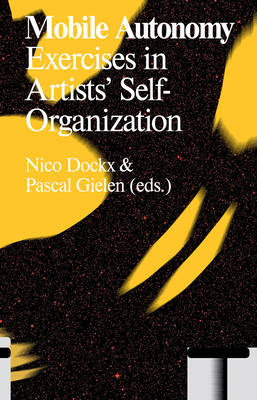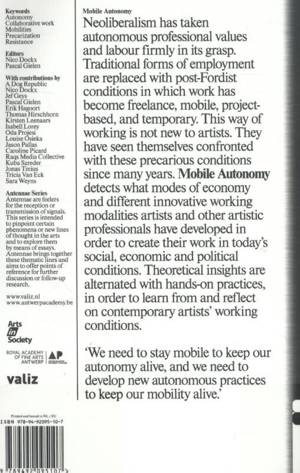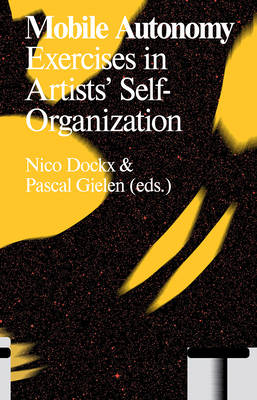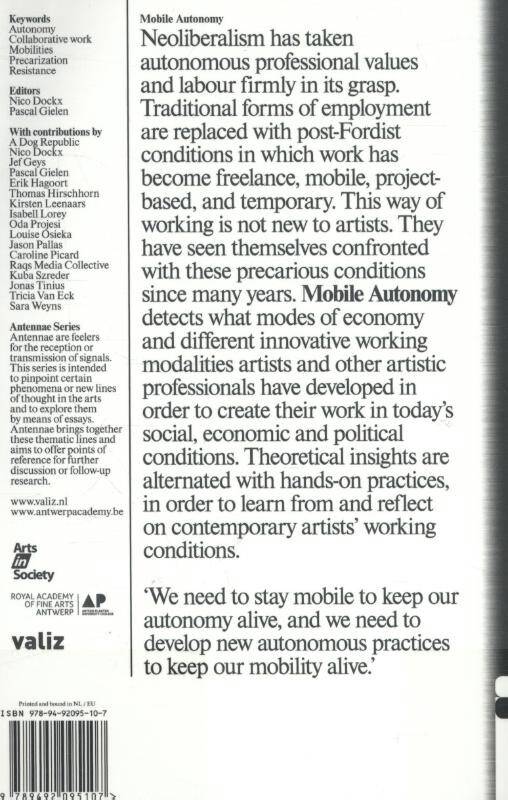
Bedankt voor het vertrouwen het afgelopen jaar! Om jou te bedanken bieden we GRATIS verzending (in België) aan op alles gedurende de hele maand januari.
- Afhalen na 1 uur in een winkel met voorraad
- In januari gratis thuislevering in België
- Ruim aanbod met 7 miljoen producten
Bedankt voor het vertrouwen het afgelopen jaar! Om jou te bedanken bieden we GRATIS verzending (in België) aan op alles gedurende de hele maand januari.
- Afhalen na 1 uur in een winkel met voorraad
- In januari gratis thuislevering in België
- Ruim aanbod met 7 miljoen producten
Zoeken


Omschrijving
Autonomous labor and its attendant values have now become familiar tools of neoliberal capitalism: work has become freelance, flexible, mobile, project-based, hybrid and temporary. If these conditions are novel to the general economy, this way of working is not new to artists, who began experiencing these precarious conditions long before Post-Fordism was a buzzword. The contributors to Mobile Autonomy, drawn from a variety of disciplines including art, political philosophy and sociology, examine the alternate working methods and economic models developed, in theory and in practice, by artists and other creative professionals to make artistic work viable in contemporary social, economic and political conditions. As Nico Dockx and Pascal Gielen put it in their introduction to this volume: "We need to stay mobile to keep our autonomy alive, and we need to develop new autonomous practices to keep our mobility alive."
Specificaties
Betrokkenen
- Auteur(s):
- Vertaler(s):
- Uitgeverij:
Inhoud
- Aantal bladzijden:
- 255
- Taal:
- Engels
- Reeks:
Eigenschappen
- Productcode (EAN):
- 9789492095107
- Verschijningsdatum:
- 26/04/2016
- Uitvoering:
- Paperback
- Formaat:
- Trade paperback (VS)
- Afmetingen:
- 135 mm x 208 mm
- Gewicht:
- 362 g

Alleen bij Standaard Boekhandel
+ 45 punten op je klantenkaart van Standaard Boekhandel
Beoordelingen
We publiceren alleen reviews die voldoen aan de voorwaarden voor reviews. Bekijk onze voorwaarden voor reviews.










